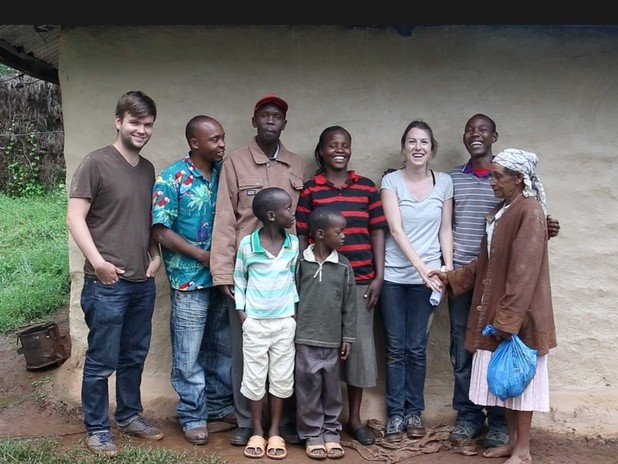June 14, 2013
To address the challenge of agricultural information sharing among rural Kenyan farmers, the IDEO.org team worked with Juhudi Kilimo to create two working prototypes in the field and delivered solid recommendation for piloting these prototypes as well as a number of other supporting ideas.
After two weeks in the field with Juhudi Kilimo and two weeks of research and synthesis, the IDEO.org team identified themes based on two prototypes, a Help Line allowing farmers’ questions to be answered by agricultural experts and an instructional video to inspire farmers to enhance their agricultural activities.
Through our design process of rapidly prototyping we uncovered key design elements to help ensure the success of these two new farmer training initiatives:
These programs work best when used in tandem, positively reinforcing one another.
Not only were farmers in need of better information sharing in order to support the work they were already doing, but there was great potential for supporting farmers when trying new things. The key to the first prototype, the Help Line, is simply being there and being available at the moment when farmers have questions. The second prototype, the instructional video, is powerful in that it helps direct farmers to ask the right questions and build up confidence in trying new ventures. Our research highlighted the importance of innovating new ideas and turning farmers from reactive to proactive. However, new ventures can also prove very costly - in terms of both finances and confidence. If a farmer invests in something new and it goes wrong, they are often deterred from trying something new again. The success of these ventures lies in the farmer’s ability to access the proper information and support by being able to ask questions at the time when when it matters most.
It is crucial to keep human interaction at the core of both programs.
Our team quickly noticed the importance of the human component for the success of these prototypes. When first designing an agricultural Help Line, we played around with the idea of providing support through SMS messages rather than calls and by cutting out the personal calls from experts - as these were the most costly components of the system. But it was soon evident that keeping people at the center of this interaction played a large role in the effectiveness of information sharing. For example, one farmer called in hoping the expert could point him to a good incubator seller. After talking with our expert, it was found that he didn't need an incubator at all as the chicks had already hatched, what he needed was to keep them warm with a small inexpensive stove. Without the human component, it would have not have been identified that, in fact, this farmer’s question was misdirected, and the information provided would not have been the most effective solution.
The human aspect was an important core of our second prototype as well. As explained in our previous post, the video was made using one of Juhudi Kilimo’s local farmers, Isaac, and his real venture in poultry farming. We found that farmers responded incredibly well to this video for two reasons, it was given in their own life context, making projects seem more attainable, and it highlighted the importance of support by local community and resources, thereby building farmers’ confidence.
-Stacy Barnes (IDEO.org Communications Designer)






